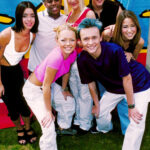The passing of Helen Reddy on Tuesday at the age of 78 in Los Angeles prompted a wave of tributes, rightfully celebrating her groundbreaking 1972 hit, “I Am Woman.” This anthem, reaching the pinnacle of the charts, became synonymous with the burgeoning feminist movement. While “I Am Woman” remains her signature song, a closer look at Helen Reddy Songs reveals a richer, more nuanced discography that resonated deeply with diverse audiences, extending beyond the feminist sphere. Her music, while seemingly mainstream pop, subtly explored themes of marginalization and offered solace to those on the fringes of society.
“I Am Woman” undeniably captured a pivotal moment. Hearing it today, the directness of its message might seem almost quaint. Yet, its assertion that women are strong, powerful, and ready to “roar” was genuinely radical in its time. Emerging alongside the debates surrounding the Equal Rights Amendment and the nascent backlash against feminism, the song became a rallying cry. It empowered women and propelled Helen Reddy to icon status, solidifying her place in music history with this powerful feminist anthem.
However, the appeal of Helen Reddy songs extended beyond this powerful declaration of female empowerment. There was another, perhaps less overtly acknowledged, audience deeply moved by Reddy’s string of pop hits: young gay men. These were individuals, perhaps pre-pubescent and pre-hormonal, yet acutely aware of their difference, sensing a destiny of societal marginalization unless they found their own voice, their own way to “roar” their truth, or at least whisper it to understanding ears.
 Helen Reddy performing "I Am Woman" on stage.
Helen Reddy performing "I Am Woman" on stage.
For a young boy coming of age when “I Am Woman” surged in popularity, the resonance was profound. Already sensing a divergence from societal norms, drawn to female friendships and fascinated by traditionally feminine attire, Reddy’s music became a secret language. The lyrics of “I Am Woman,” played furtively on the radio, were memorized and internalized, a personal anthem sung in private, away from the potentially judgmental gaze of a suburban community still grappling with rigid gender roles.
But this adoration transcended a single feminist anthem. Helen Reddy became a first pop music obsession, leading to the purchase of “Long Hard Climb,” the first album bought with hard-earned allowance money. The pastel foldout jacket of this 1973 release, featuring hits like “Delta Dawn” and “Leave Me Alone (Ruby Red Dress),” remains a vivid memory. These weren’t just catchy tunes; they were portals into a world of complex emotions, played repeatedly until the vinyl itself seemed weary. Looking back, it’s evident that these, along with the later hit “Angie Baby,” wove a darker thread through Helen Reddy songs – a subtext of social isolation and its corrosive impact.
Consider “Delta Dawn.” The song paints a portrait of a woman deemed “crazy” by her community. She wanders Brownsville, clutching a suitcase, searching for a man who abandoned her. Through a modern lens, Delta Dawn is a victim of societal cruelty, a “fallen woman” ostracized and pathologized for a sexual transgression. Similarly, “Ruby Red Dress” presents a woman wandering an unnamed town, “talkin’ to herself,” recoiling from human contact. Her repeated plea, “Leave me alone,” echoes for eight lines in each chorus, a haunting mantra of loneliness and rejection. Like Delta Dawn, Ruby is also implied to be a victim of male abandonment, left to grapple with the aftermath of a fleeting connection.
While the young, proto-gay sensibility might not have consciously identified with these “pathetic figures,” as the author initially describes them, pop music possesses a powerful ability to spark subconscious self-discovery and offer unexpected solace. The raw vulnerability in the repeated cry of “leave me alone” in “Ruby Red Dress,” for example, undoubtedly resonated on a deeper level. Even without fully grasping the sociological implications, the emotional core of these Helen Reddy songs connected with feelings of being different and set apart.
 Helen Reddy performing "Angie Baby" on stage with dramatic lighting.
Helen Reddy performing "Angie Baby" on stage with dramatic lighting.
Perhaps the most unsettling of Reddy’s heroines is “Angie Baby.” This song delves explicitly into escapism through music, a refuge for those facing a harsh reality. “You live your life in the song you hear / On the rock and roll radio,” the lyrics begin, empathizing with a young girl who, lacking friends, finds solace in the sonic world of the radio. Angie, labeled “special” and living in “a world of make-believe,” is haunted and ostracized, victimized by a predatory “neighbor boy.”
Yet, unlike Delta Dawn and Ruby Red Dress, Angie Baby achieves a form of dark empowerment. The predatory boy, through an ambiguous twist, is seemingly absorbed into the music of Angie’s radio, becoming her “secret lover” while real-world headlines report his disappearance. In a way, Angie Baby reclaims power, finding agency within her own constructed reality.
Beyond these darker narratives, Helen Reddy songs also included more overtly positive and uplifting tracks like “Peaceful” and “Keep on Singing.” However, in retrospect, it’s the stories of these flawed, marginalized women, delivered through Reddy’s powerful vocals and catchy melodies, that truly burrowed into the hearts of young listeners who felt like outsiders. More than even the empowering anthem of “I Am Woman,” these songs, with their grim yet captivating narratives, offered a strange but necessary comfort. If these “freaks,” these outcasts, could become the subjects of popular songs sung by Helen Reddy, perhaps there was a glimmer of hope, a sense of recognition, for even a kid who felt different.
Helen Reddy’s legacy extends beyond “I Am Woman.” Her songs, in their exploration of female strength and vulnerability, and their subtle acknowledgment of societal outcasts, provided a soundtrack for a generation navigating complex social and personal landscapes. Exploring Helen Reddy songs reveals an artist whose work resonated on multiple levels, offering both empowerment and a sense of belonging to those who needed it most.

